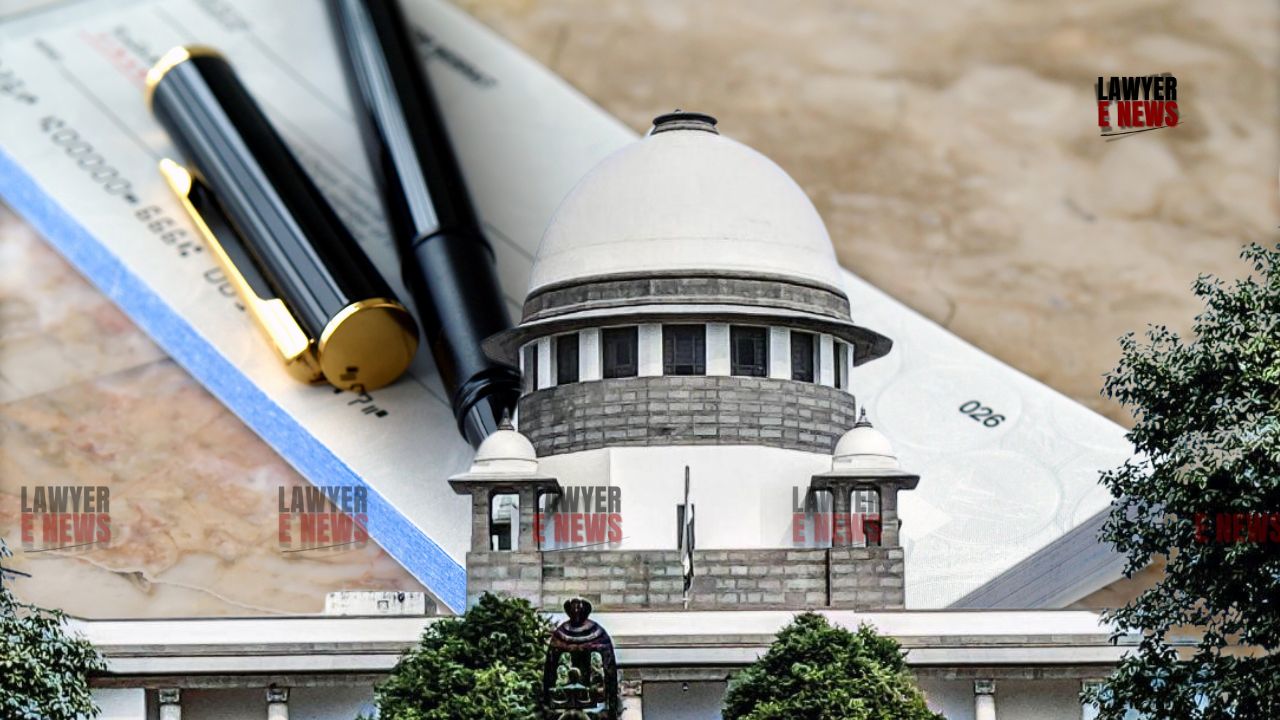-
by sayum
14 February 2026 2:22 PM



"Authorized signatory is not a ‘drawer’ and cannot be held liable for interim compensation," rules the Supreme Court. The Supreme Court, in a judgment delivered on July 24, 2024, upheld the Bombay High Court’s ruling that an authorized signatory of a company cannot be considered a "drawer" under Section 143A of the Negotiable Instruments Act, 1881 (NI Act). This ruling denies interim compensation claims against such signatories, maintaining that liability rests solely with the company. The decision reinforces the principle that penal statutes should be interpreted strictly, preserving the integrity of statutory language and legislative intent.
The case arose from a series of transactions between Shri Gurudatta Sugars Marketing Pvt. Ltd. (the appellant) and Cane Agro Energy (India) Ltd., wherein Cane Agro failed to supply sugar as agreed and issued cheques worth ₹51.64 crores to refund the advance payments. The cheques, signed by the respondents who were directors of Cane Agro, were dishonored due to insufficient funds. The appellant sought interim compensation under Section 143A of the NI Act from the signatories during the pendency of the criminal proceedings. However, the Bombay High Court ruled against this, stating that only the company, as the drawer, could be held liable for such compensation, a decision now upheld by the Supreme Court.
The Supreme Court, affirming the Bombay High Court's interpretation, held that the term "drawer" in Section 143A unambiguously refers to the entity that issues the cheque, typically the company itself in cases involving corporate transactions. The Court observed, “The drawer must ensure sufficient funds in their account at the time the cheque is presented,” and this primary liability does not extend to authorized signatories who are merely representatives of the company.
The Court emphasized the distinct legal identities of companies and their authorized signatories, a fundamental principle of corporate law. It clarified that while signatories can bind the company through their actions, they do not assume the company’s legal identity. The judgment states, “Authorized signatories act on behalf of the company but do not merge their legal status with that of the company.”
The Court highlighted that criminal liability, especially under penal statutes, should not be extended beyond what is expressly provided by law. The judgment cited established precedents to support a strict interpretation, rejecting the appellant’s plea for a broader application of Section 143A to include directors or signatories. The Court stated, “Penal provisions must be read strictly, and liability cannot be extended beyond the statutory text.”
The Supreme Court upheld the principle that the term "drawer" carries a specific meaning under the NI Act, which cannot be expanded to include authorized signatories. The Court dismissed the appellant’s reliance on the case of Aneeta Hada v. Godfather Travels & Tours Pvt. Ltd., noting that while that case discussed the extension of criminal liability under Section 141 of the NI Act, it did not support extending the definition of "drawer" under Section 143A to include signatories.
The Supreme Court's ruling underscores the importance of adhering to statutory language in interpreting provisions of the NI Act. By upholding the Bombay High Court’s decision, the judgment ensures that liability for cheque dishonour under Section 143A remains limited to the drawer, typically the company, and does not extend to individual signatories. This decision is significant in maintaining the clarity and consistency of the law, preventing unwarranted extensions of liability that could disrupt the established legal framework governing negotiable instruments.
Date of Decision: July 24, 2024.
Shri Gurudatta Sugars Marketing Pvt. Ltd. vs. Prithviraj Sayajirao Deshmukh & Ors.
